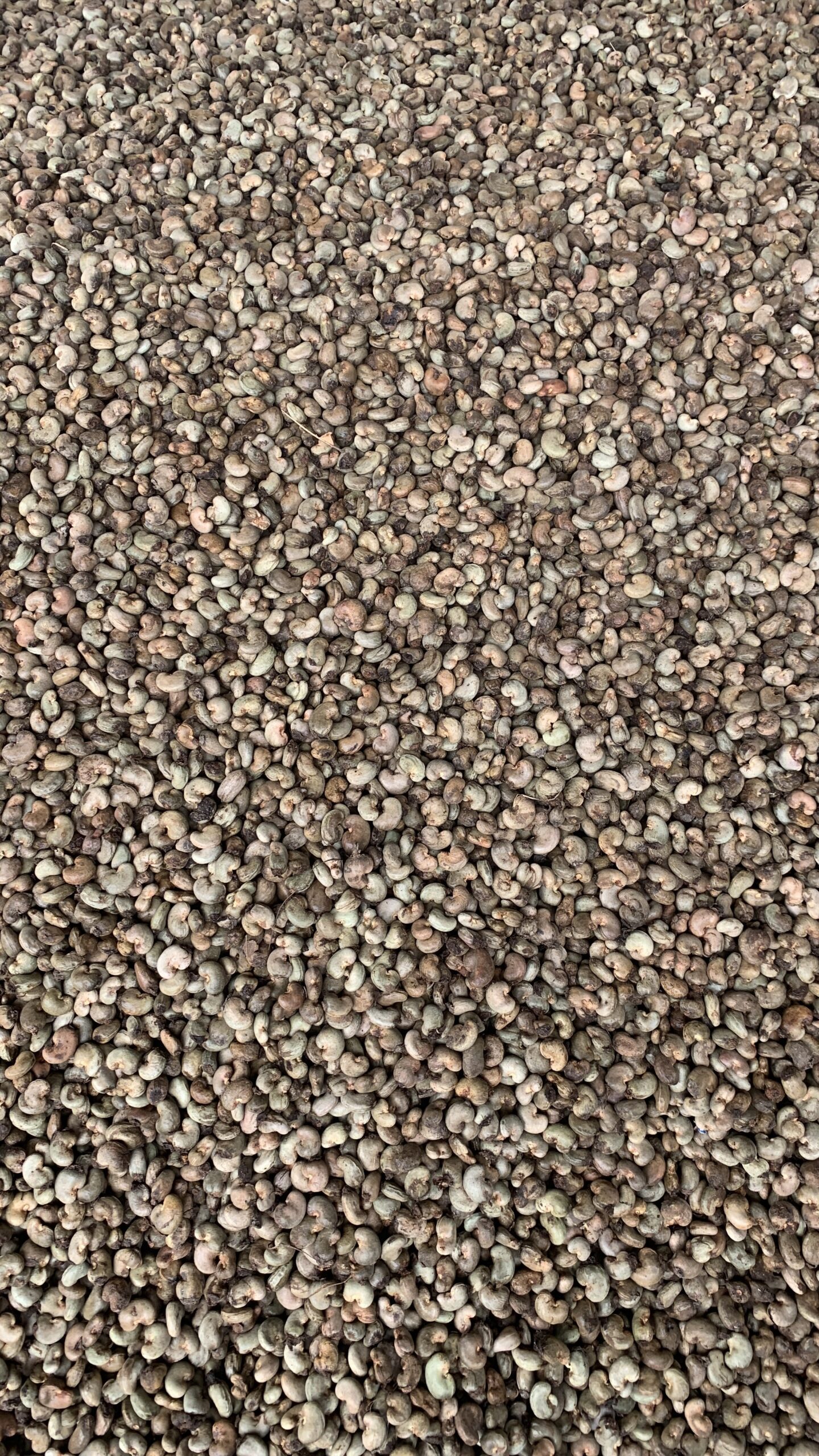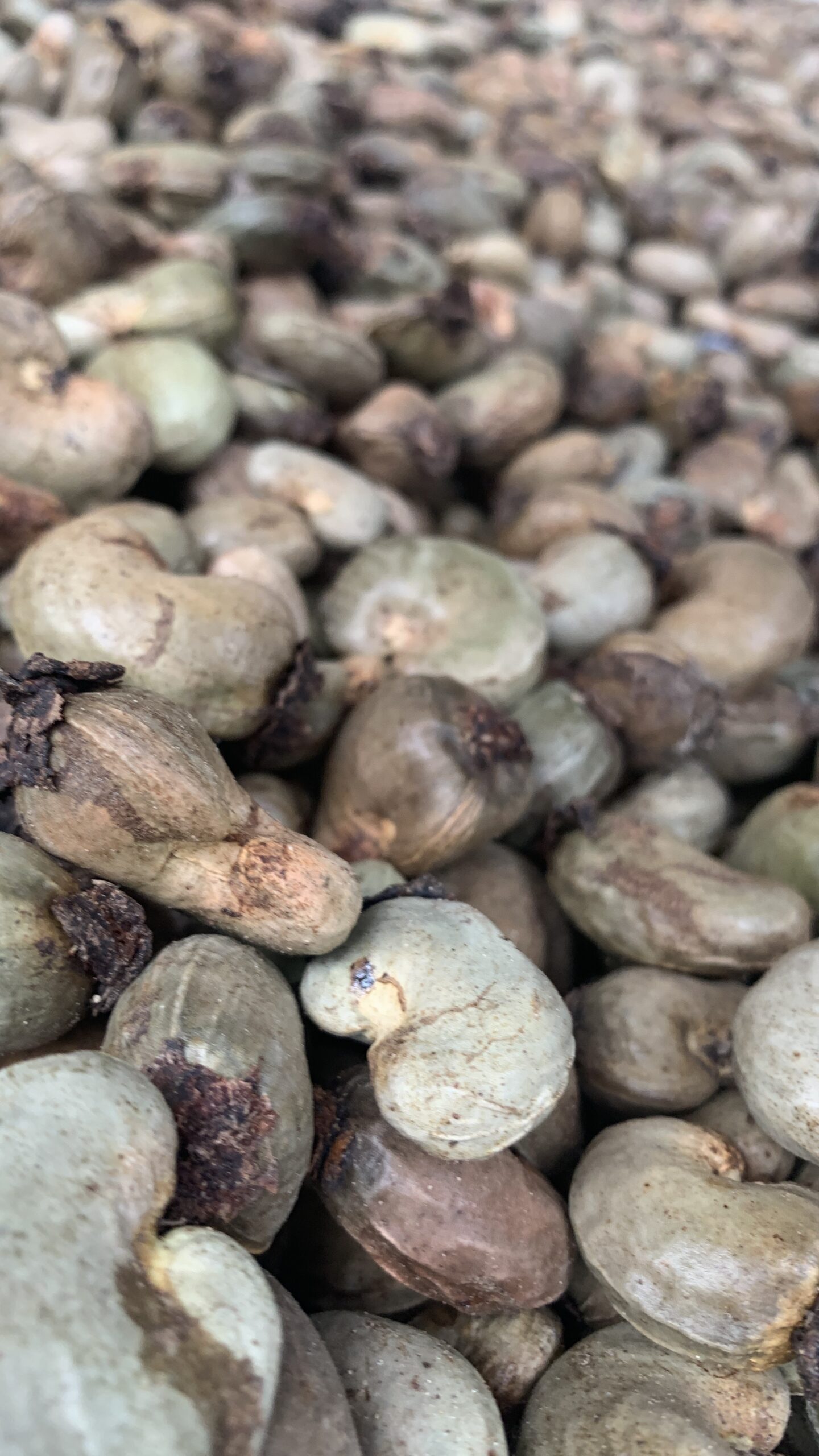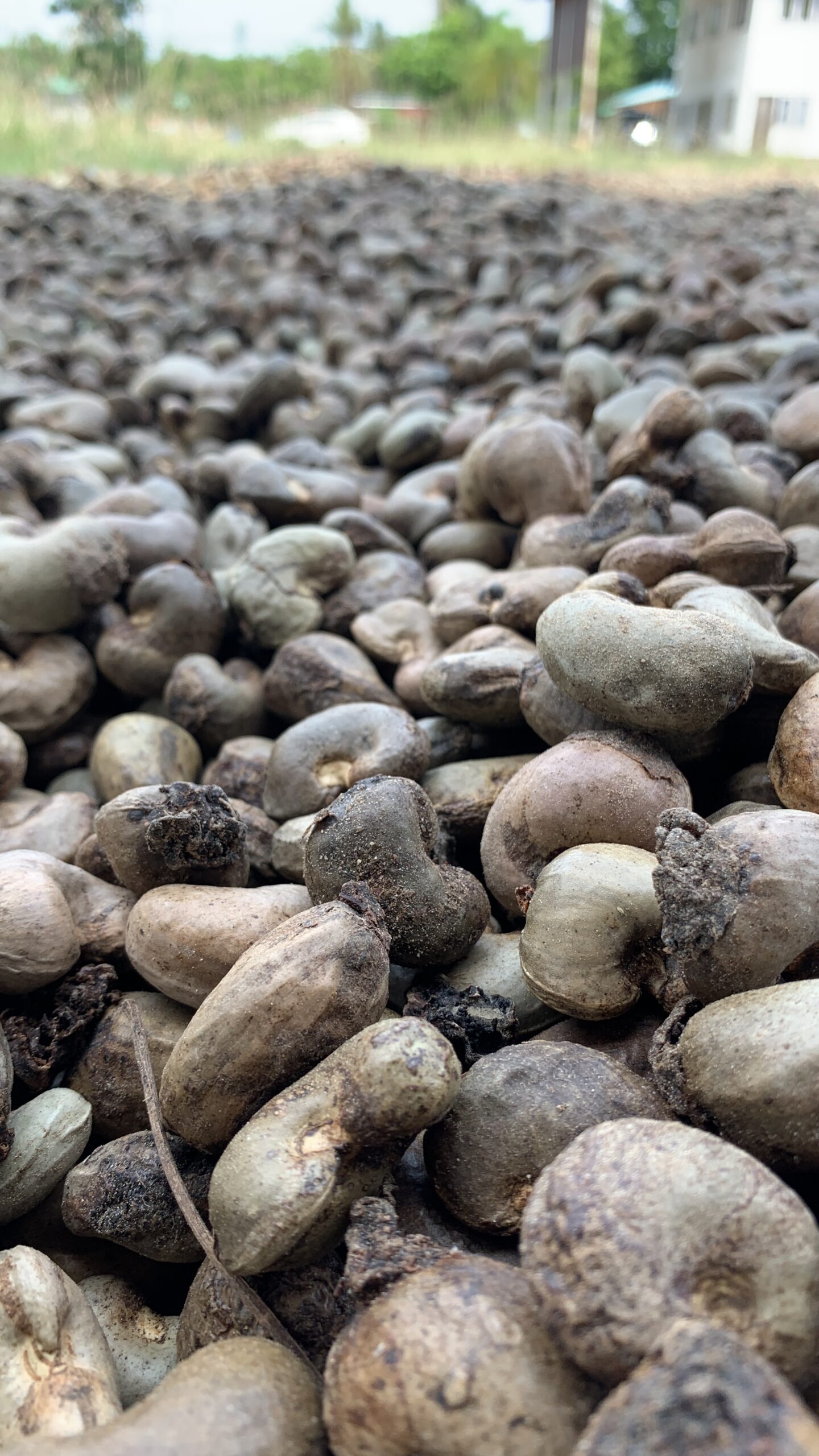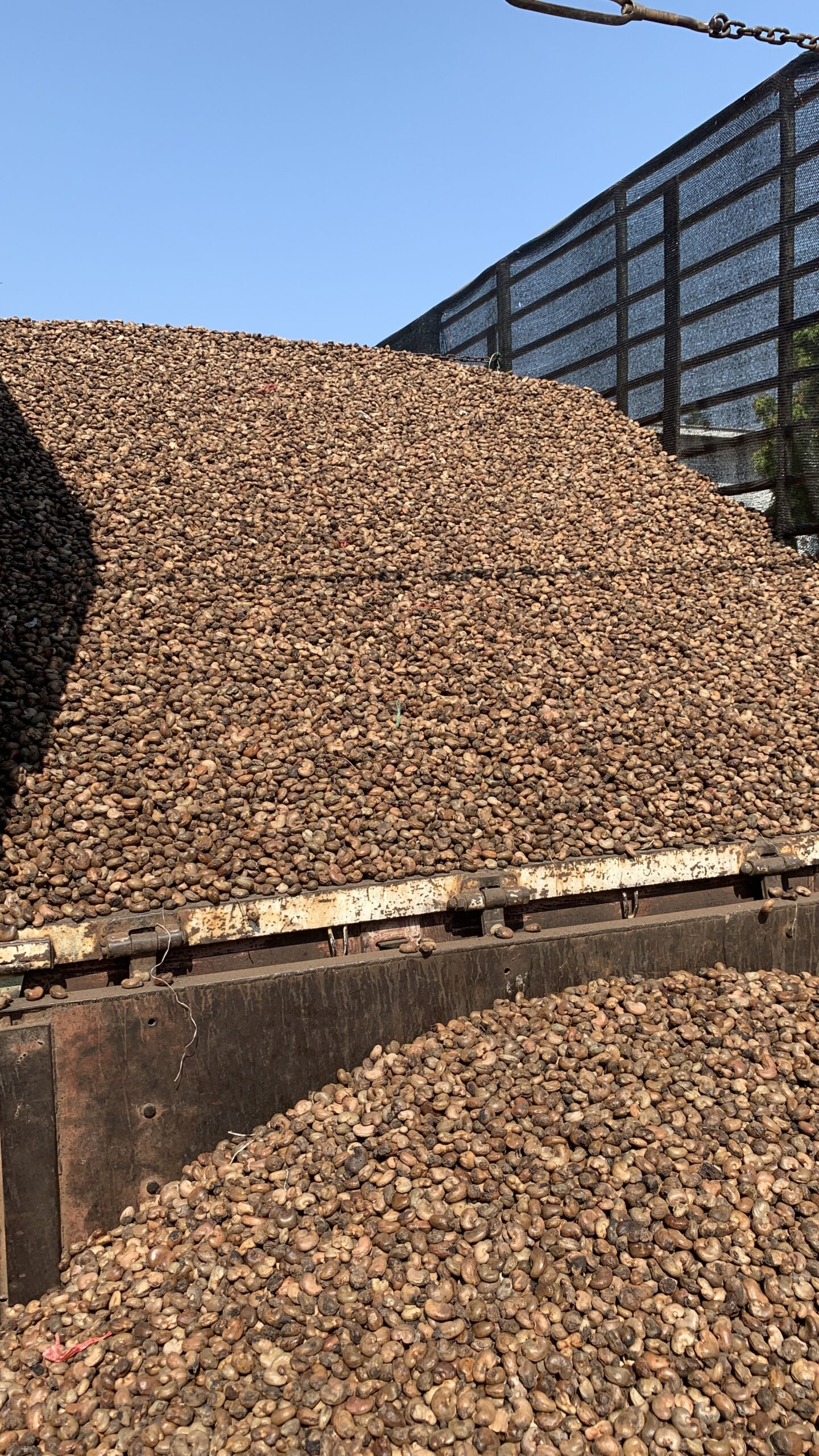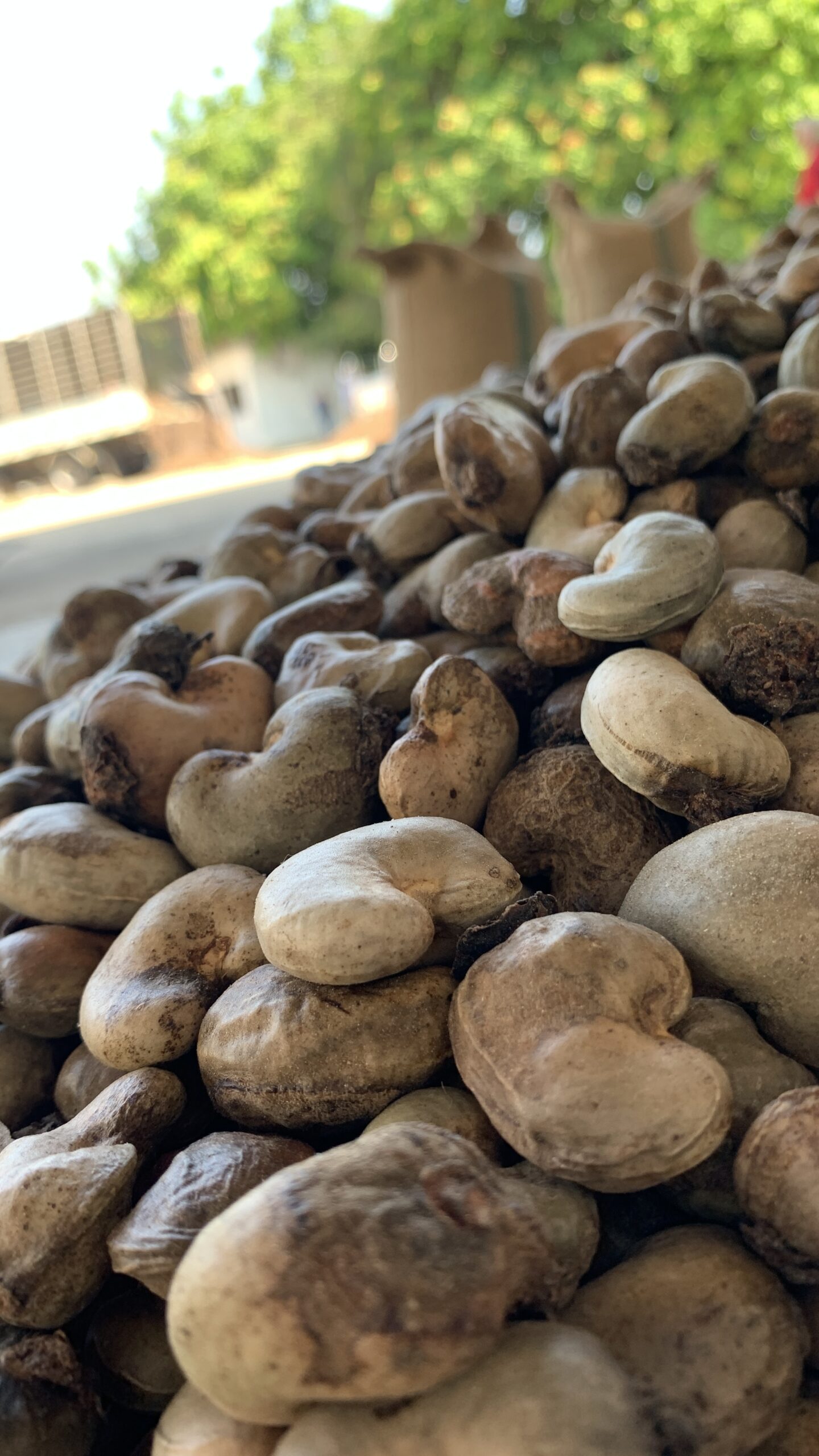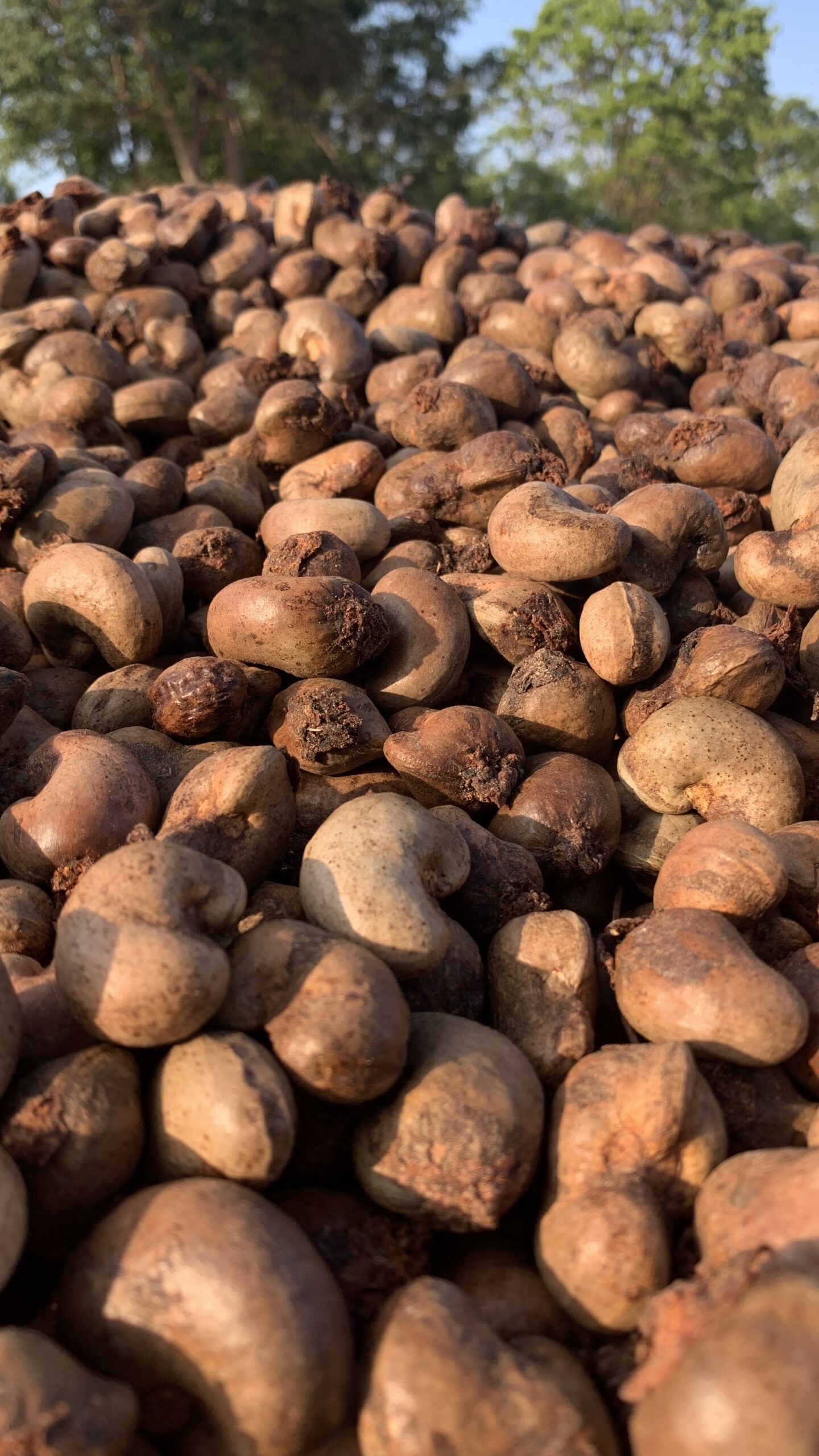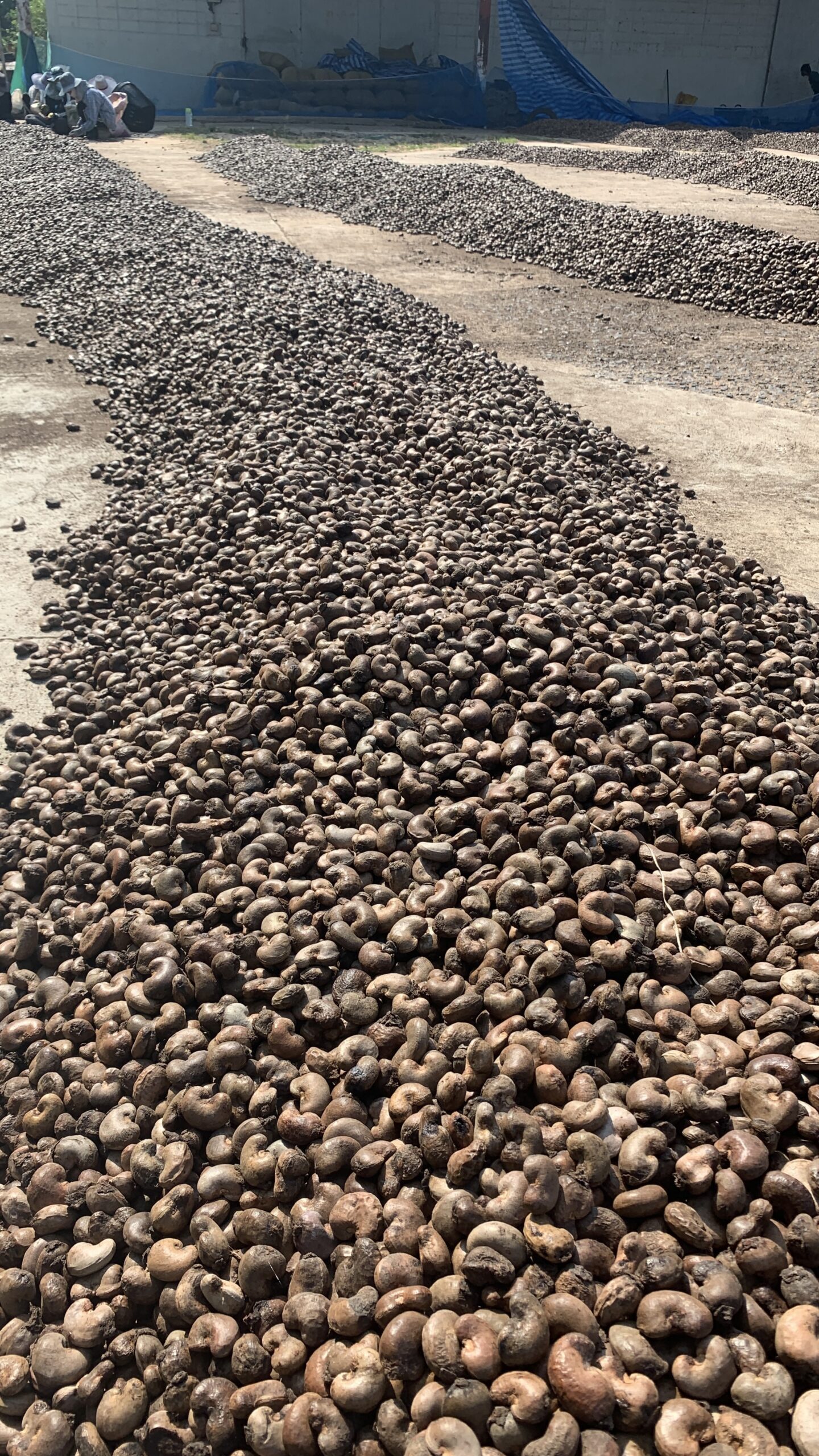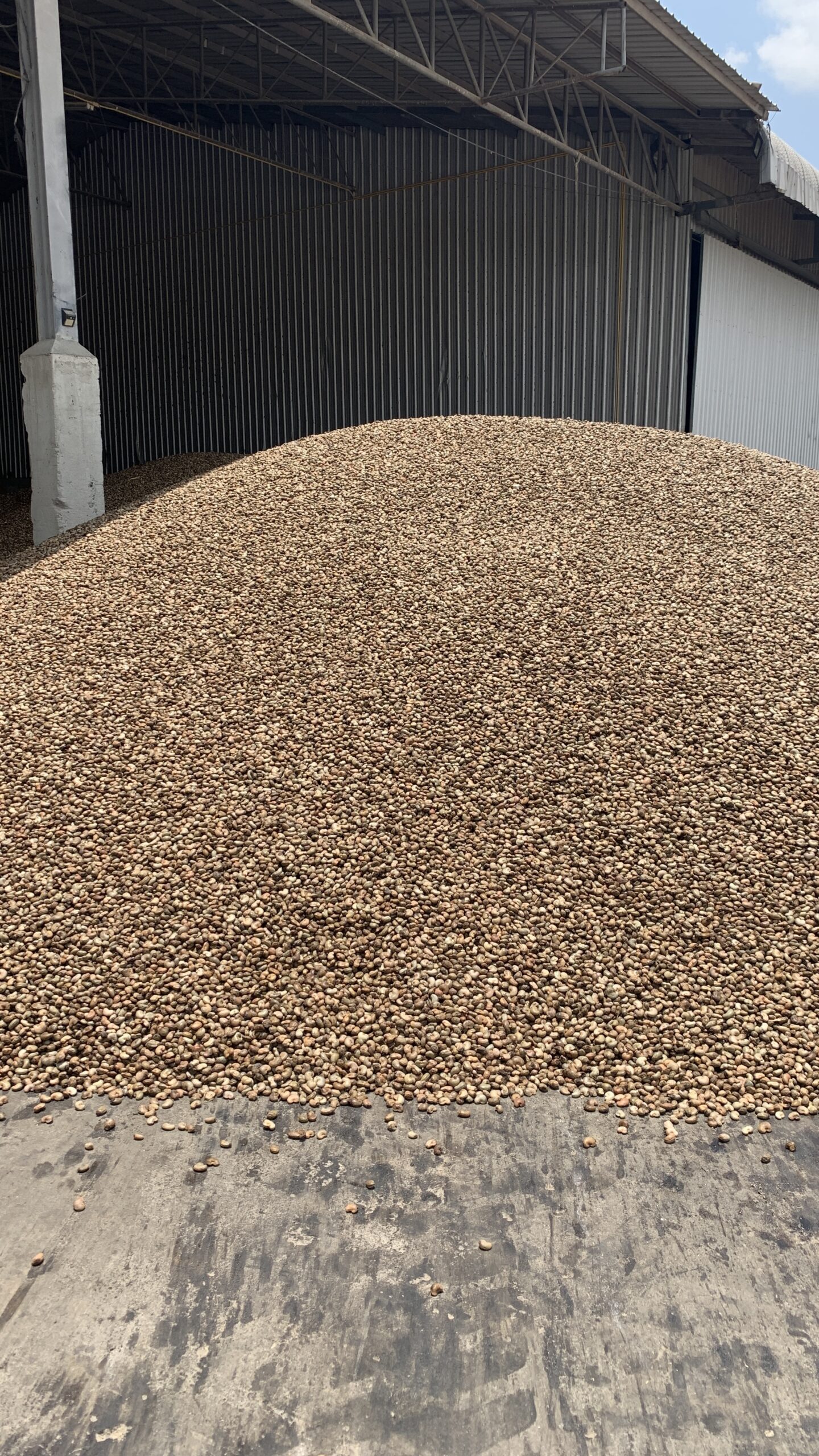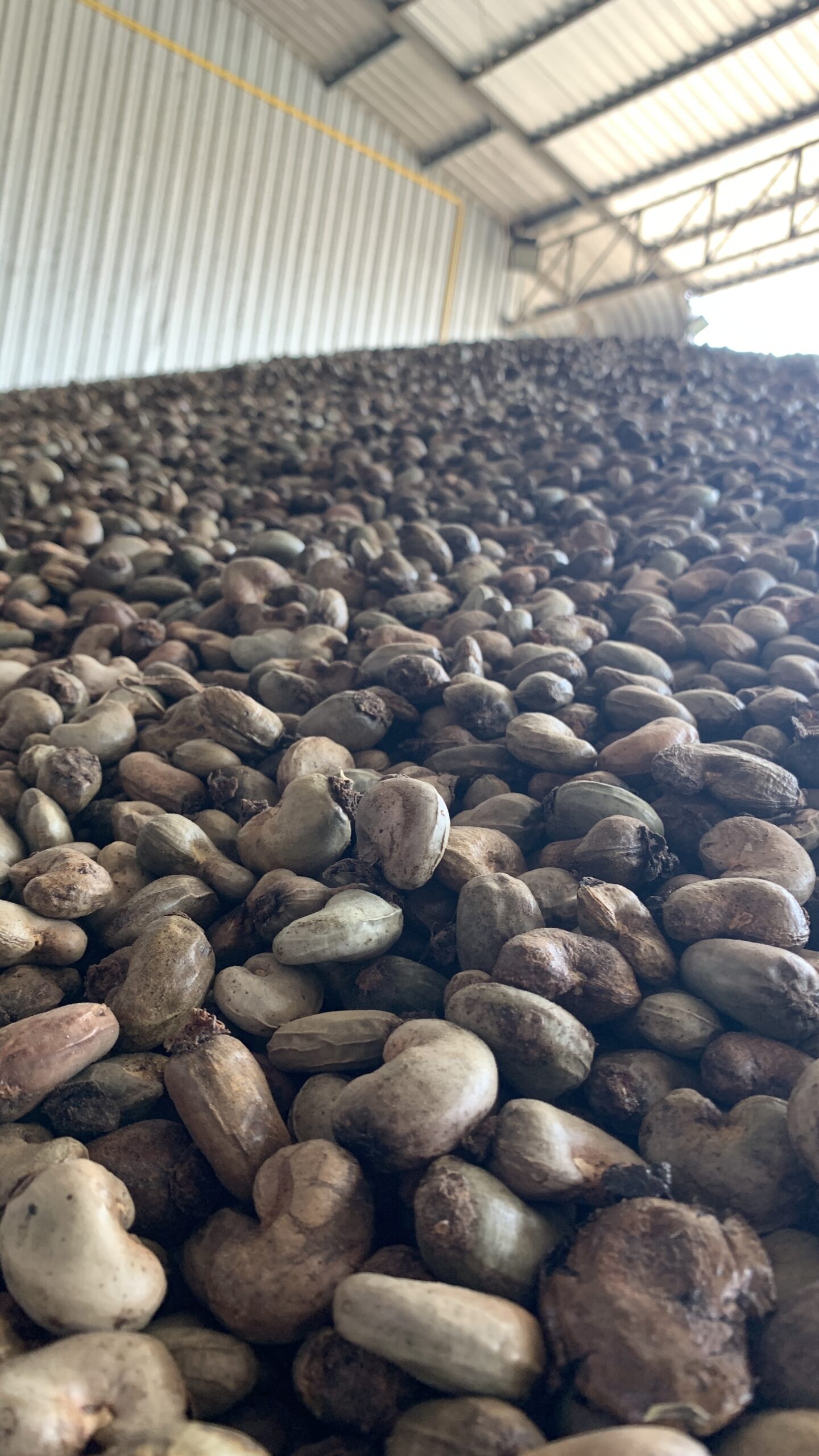About Cashews
The Cashew tree (Anacardium Occidentale) is a tropical evergreen native to the Americas but is now widely cultivated in Asia and Africa. Cashew in its natural form is a soft, white, meaty kernel contained within the hard shells of kidney shaped, raw cashew nuts. Cashew is consumed all over the world as a snack or used as a food ingredient. Every year, the world eats more than 600,000 metric tons of cashew. And fortunately, it’s a very healthy food. Cashew nuts are among the most nutritious nuts in the world. Cashew Nuts are low in fat, have zero cholesterol, are high in protein, and include a large amount of important vitamins and minerals.
Specification:
- Type: Cashew Nut.
- Processing Type: Raw in shells
- Cultivation: Organic
- Style: Dried
- Grade: A
- Size: Approx. 185 pc/kg
- Colour: green
- Protein: 18%
- Minerals: 2.4%
- Fat: 44%
Nutritional Value:
Raw cashews are 5% water, 30% carbohydrates, 44% fat, and 18% protein. In a 100-gram reference amount, raw cashews provide 553 Calories, 67% of the Daily Value in total fats, 36% DV of protein, 13% DV of dietary fiber and 11% DV of carbohydrates. Cashews are rich sources (20% or more of the DV) of dietary minerals, including particularly copper, manganese, phosphorus, and magnesium (79-110% DV), and of thiamin, vitamin B6 and vitamin K (32-37% DV) . Iron, potassium, zinc, and selenium are present in significant content (14-61% DV) . Cashews (100 grams, raw) contain 113 milligrams (1.74 gr) of beta-sitosterol.
Sourcing Hubs
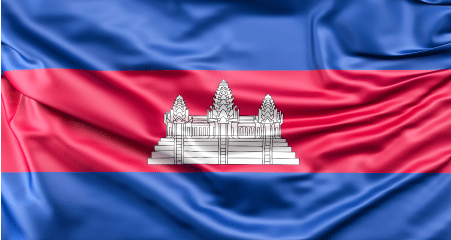

Combodia
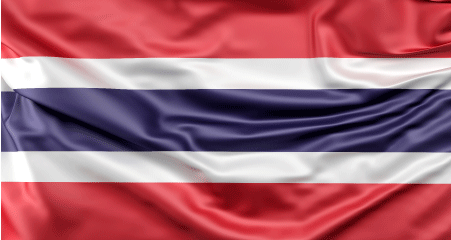

Thailand


Ghana


India


Benin



